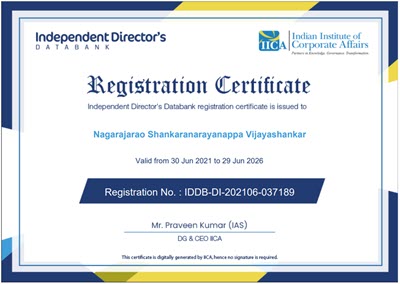5th September 2021
PRESS RELEASE
FDPPI Proposes a New Data Privacy Compliance Framework
Foundation of Data Protection Professionals in India (FDPPI) is organizing a free webinar on 19th September 2021, to build awareness on a unique Data Protection Compliance framework that can help the data processing industry in India to meet the Data Privacy obligations under the current Data Protection regulations applicable to Indian establishments.
The framework called “Personal Data Protection Standard of India” (PDPSI) is a unified framework that can assist a company to be compliant with the data protection requirements under Information Technology Act 2000, the proposed Personal Data Protection Bill 2019 (PDPB 2019) as well as GDPR and other international data protection regulations that may be applicable to Indian establishments.
PDPSI is a revolutionary concept “Made in India for the World” and incorporates several innovative futuristic ideas such as computation of “Data Trust Score” (DTS) and incorporating Data Valuation System in corporate Governance.
FDPPI has already developed a team of trained Auditors and Consultants and also created a group of Certification bodies which can undertake Consultancy and Audit based on the PDPSI framework and certify them for the Management.
When the PDPB 2019 is passed, the Government of India will set up a Data Protection Authority which will introduce codes of practice for industries to follow. PDPSI is an advance proactive initiative from the industry professionals to develop a system of compliance in tune with the global standards and flexible enough to meet the emerging requirements of PDPB 2019 when passed.
The webinar will be conducted by Naavi, the veteran Data Protection and Governance consultant, founder of www.naavi.org and Founder Chairman of FDPPI . During the webinar, Naavi will introduce the Standard and its implementation specifications with comparison of similar frameworks available from other agencies.
The webinar is sponsored by FDPPI for the benefit of Data Protection professionals in India to spread awareness of this framework. Registration would be free. The webinar would be conducted on September 19, 2021 (Sunday) from 11.00 am to 1.00 pm. Entry by registration at www.fdppi.in or through e-mail fdppi@fdppi.in
Sd
Chairman
FDPPI











